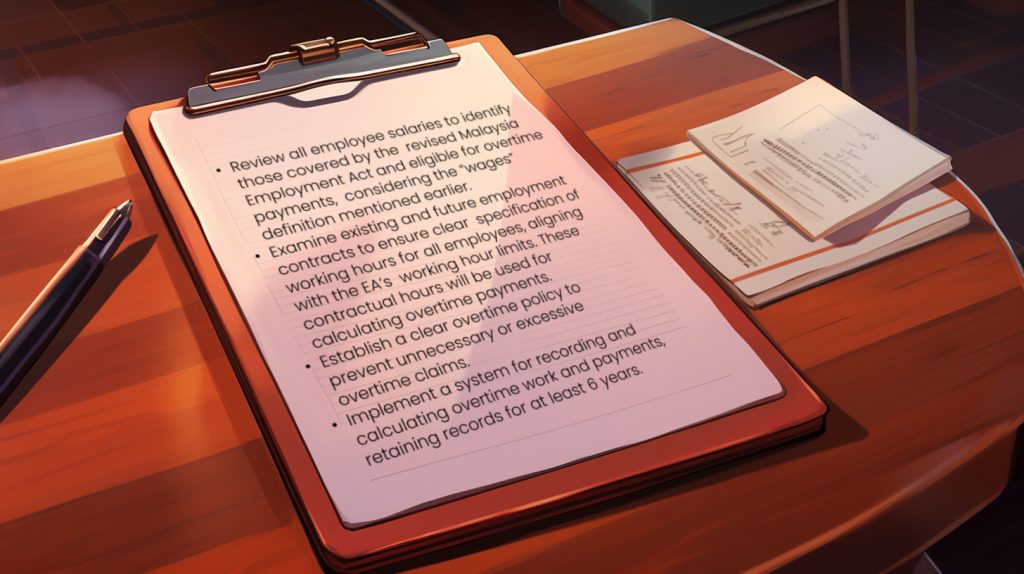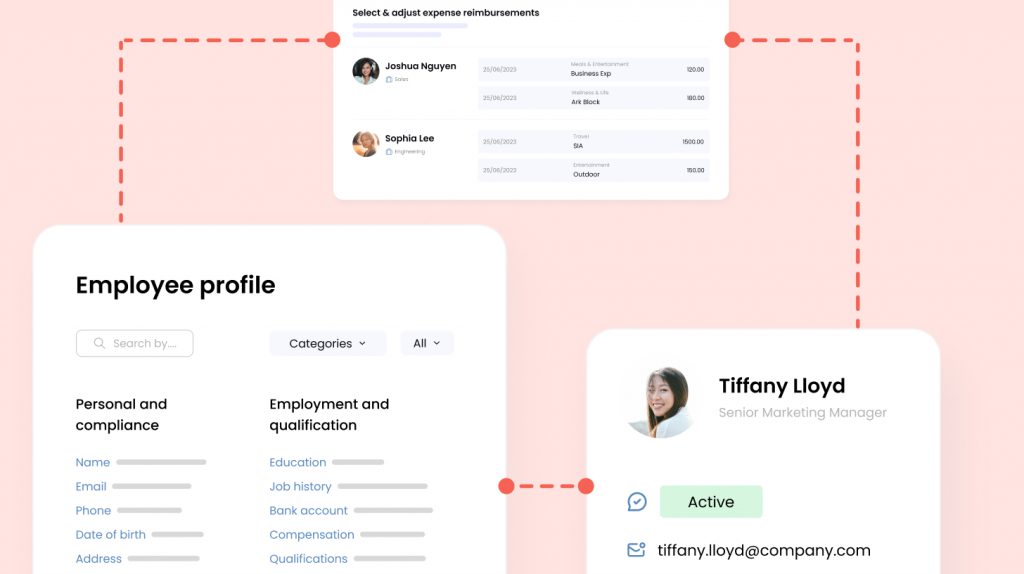
The Malaysia Employment Act 1955 is a cornerstone of Malaysian employment law, which means employers hiring in Malaysia need to know it inside and out—especially if there are updates.
At the beginning of 2023, an amendment went into effect in response to changes in the cost of living, currency values, and other developments, to enhance employee protection in Malaysia. This amendment also included key changes to the First Schedule, which defines the categories of employees covered by the Malaysia Employment Act 1955.
With the implementation of the bill which came into effect in January 2023, there’s been wide-spread confusion on exactly what and how the changes should be implemented. These include expanded coverage of the act, reduced working hours, protection for gig workers and more. Here, we’ll break down the important changes that HR managers in Malaysia should be aware of to remain compliant with the Malaysia Employment Act.
The Malaysia Employment Act 1955 is the cornerstone of Malaysia’s labor laws, governing the relationship between employers and employees. It covers a wide range of issues that affect both parties, ensuring fair treatment and protection for everyone in the workforce.
You can check out the details in this Malaysia Employment Act 2023 pdf, or keep reading for a rundown of the core components of the Act:
The Act now covers all employees regardless of their wage, removing the previous RM2,000 monthly wage limit. This ensures equal protection and rights for all workers.
The Act sets standards for things like:
The Act is about more than just basic employment protections. It also covers wellbeing within the workplace. These include:
It’s important to know what is expected of employers so that your organization can remain compliant and build a safe and effective workplace. Obligations include:
Sometimes things don’t go smoothly at work. The Malaysia Employment Act provides ways to resolve disagreements between employers and employees:
While the Act has been protecting Malaysian workers since 1955, major updates to the Labour Law Malaysia took place last year. Here’s what you need to know about the updates for 2024 and beyond:
The salary threshold for overtime eligibility has increased. Previous to the update, only employees earning below a certain amount (RM2,000) were entitled to overtime pay. Now, that threshold has been raised to RM4,000.
The Malaysia Employment Act 1955 now covers all employees, regardless of their wages. Previously, the Act only applied to employees earning monthly salaries of RM2,000 or less, along with specific worker categories.
Amendments to the Act’s First Schedule mean that all employees, regardless of their salary, are now covered. However, those earning above RM4,000 per month are exempted from certain provisions, including:
This change provides legal protection to employees who were previously not covered by the Malaysia Employment Act.
The amended Malaysia Employment Act now includes provisions for flexible working arrangements, which are important in the post-pandemic business landscape. Under Section 60P and 60Q, employees can request flexible work arrangements in writing, and employers must respond within 60 days, providing reasons in case of rejection.
The maximum working hours for workers have been reduced from 48 hours per week to 45 hours per week, effective 1 January 2023, excluding meal breaks. This change aims to protect workers’ welfare, reduce employee burnout, and aligns with the International Labour Organization (ILO) Convention.
Maternity leave entitlement for working mothers has increased from 60 days to 98 days post-delivery. For the first time, the Act includes paid paternity leave of 7 consecutive days, subject to the following conditions:
Pregnant mothers and those suffering from pregnancy-related illnesses are now protected against termination under the updated Malaysia Employment Act, with exceptions for:
A new section in the Malaysia Employment Act covers gig workers, providing them with protection even in the absence of a written contract, under the following conditions:
Section 81H of the Malaysia Employment Act requires employers to display notices raising awareness about sexual harassment in the workplace.
Changes to Section 60K now require employers to obtain prior approval from the Director-General to hire foreign employees and notify the Director-General within 30 days if foreign employees are terminated. Previously, employers who hire foreign employees were required to inform the Director-General of new foreign employees along with details within 14 days of employment.
To determine which employees qualify for wages up to RM4,000 per month, it’s important to understand the specific definition of “wages” under the Malaysia Employment Act. According to the Act, “wages” include basic wages and all cash payments to an employee for their work under the contract of service. However, it does not include the following:
The Malaysia Employment Act defines “overtime” in two key sections:
Based on these sections, overtime is any work done outside the hours stated in the employment contract. However, the hours in the contract are subject to the restrictions outlined in Section 60A(1), which now includes limits such as not working more than 5 consecutive hours without a 30-minute leisure break and not exceeding 45 hours in a week.
Employees on a monthly wage are entitled to overtime payments in the following situations, along with the respective formulas/rates:
Overtime rates depend on the “ordinary rate of pay” and “hourly rate of pay,” which the Malaysia Employment Act defines. For employees paid on a monthly rate of pay:
For example, if an employee’s monthly salary is RM3,900 and their employment contract requires them to work 8 hours a day, they would have:

Due to the recent amendments to the Malaysia Employment Act, employers who were not previously concerned with overtime payment regulations now need to take action. Here are the steps you need to take::
 employment act 1955" width="1024" height="574" />
employment act 1955" width="1024" height="574" />
HR managers have their hands full, and the recent amendments to the Malaysia Employment Act 1955 add yet another layer of responsibility to their already existing workload. Tracking and calculating hours, managing employee records, and administering payroll requires a clear, secure, and accurate system to ensure compliant and timely payouts for your employees.
Omni’s all-in-one HR solution helps make these tasks streamlined and free of manual error to reduce the administrative burden on HR. With secure and centralized employee records, HR teams can easily store, update, and communicate employee information across departments and with employees. Our payroll solutions make it easier than ever to calculate accurate employee payments and tax calculations through automation that saves time and reduces errors. And with automated payroll information synchronization, end of month processing becomes a streamlined and seamless effort.
Book a demo with our team, or try out Omni for free to learn how our automation can help you remain compliant and reduce your administrative workload for all of your People management needs.